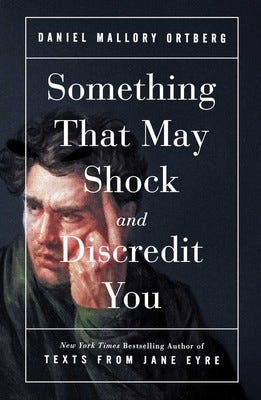
Hi friends,
Love is in the air! Let’s talk about when it sucks!
If you’ve gotten more than a few rejections, maybe even from me, you may have heard “I’m sorry, I just didn’t fall in love with this,” as a reason an agent isn’t offering representation or an editor isn’t offering a book deal. I have definitely used this myself, and I have received this rejection literally thousands of times. That’s not an exaggeration. I know just how beguiling it is to offer and how frustrating it is to receive. This is an attempt to decode it for you, to take the sting out, just a little.
When I deploy I’m sorry, I just didn’t fall in love with this, I often like one or more things about what I just read. Maybe the voice is good; maybe the hook is good—and sometimes I’ll even mention that in my rejection. I’ll say something like I admire your voice very much, but unfortunately I didn’t fall…. etc. To me, this is a bit of a more personal rejection, something softer than my standard form rejection (that subscribers can see in real life here). I can’t promise that other agents or editors use it this way, but to me, this phrasing highlights just how subjective this whole business is and how you just have to find the right match. Books other people loved I have HATED and vice versa so ¯\_(ツ)_/¯. I know that is not helpful in creating a plan to reach a concrete goal, but there is no such thing in publishing, no specific and inalienable set of actions that will yield a guaranteed result, so best to just get used to this now.
I just didn’t fall in love with this also means: I’m pretty busy right now and have to be very choosy about what I take on and this was good but not good enough to increase my workload. It means: I think this premise is pretty good but is lacking in a few ways that I don’t have time to provide guidance on, but I also bet someone else will have time for. It means: I have to be willing and able to talk about how great this book is for months if not YEARS and I just am not there with this.
Did you notice what’s not there? Yhis is bad. This is worthless. This is horrible. This is stupid. This will never get published. This author is bonkers. This is bad writing. This is dreck. You know why? Because honestly, my first thought about a query or book is not a value judgement in terms of GOOD or BAD. That is not my job. It’s my job to evaluate what others might want to read, what might find its own readership, what might even do some good in the world. If I just did what I only thought was good or bad, my list would be very small and boring and likely only appeal to me.
(I hear you asking but why can’t you just tell me more specifically why you’re rejecting my work. And I already wrote about that here, too. Probably a good time to become a subscriber!)
When an editor says to me they just didn’t fall in love with a submission, they’re basically saying the same thing as I say to queriers. Something was off. Their lists are pretty full, and this didn’t make the cut. They liked it but maybe sales or marketing didn’t, and thus they can’t make an offer. There is often one or two more sentences that help me further decode this, maybe about voice or market or something similar on their lists. From an editor, this is also a nice rejection that tells the agent (and the author) I looked at this and while I can see why you sent it to me and I appreciate that, it just didn’t make the cut. Again, you’ll notice, the editor isn’t saying YOU ARE WORTHLESS THIS IS CRAP, for all the same reasons I mention above.
As a writer, what are you supposed to do to with this kind of feedback? Basically nothing, because there’s nothing substantive there. If there is something substantive (a mention of pacing or the ending or the hook), you can take that nugget and turn it over a few times, see if you agree, talk to your agent or writers group or friends. Maybe they are right, maybe they aren’t. But didn’t fall in love is most likely just that your number didn’t come up, you didn’t get a bingo, this editor or agent is not for you. Onward to someone else who is.
Happy pub day to Daniel Lavery for his “memoir-adjacent” book SOMETHING THAT MAY SHOCK AND DISCREDIT YOU! You can read this absolute rave review in the New York Times, and an excerpt, too, and order it from your bookstore of choice! Are you already reading The Shatner Chatner? You should be!!!

Love you mean it,
Kate



In your list of form rejections, one of them mentions having a "considerable and demonstrable platform". I'm assuming this pertains primarily to non-fiction authors needing to be established authorities on their topic?
My alternate interpretation was that it means that the author needs more followers on social media. But that seems less likely to me.
Would love to know if I guessed correctly!